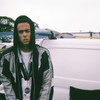Art is not dictated by one company, or mapped out in advance by a single committee. It has a life of its own, and predicting its movements can—and should—be difficult. Still, those of us who like to write about culture like to play amateur Nostradamus anyway—to attempt to pin down about why we think seismic shifts happen, and where we think culture will head next.That's exactly what New York Times Magazine has just done, undertaking a project audaciously billed as the "25 Songs That Tell Us Where Music Is Going." Now, there are plenty of "artists to watch" type polls that circulate online and in print, detailing emerging artists or notable new tracks. But this list, instead, is more concerned with pulling apart the current mainstream as a whole in order to predict where the most important influences lie, and how certain songs can act as a model for the songs of we'll see in the future. So because we too care about the future of music, we ran down the list, listened to the tracks, marvelled at its nifty interactive layout, and read the words (crafted by a number of prominent music critics, as well as forward-thinking authors like George Saunders and Marlon James).The resulting piece, as you might expect, bears mixed results. It highlights only four tracks by women, and entirely shuts out the most forward-thinking strands of electronic music, which is a bit ironic, considering its future-gazing premise (to mark the occasion, the publication even created two "virtual-reality films" in the New York Times app, on Syd Tha Kid/The Internet and Run the Jewels, respectively). We weighed each of the entries and read between the lines to determine the few lessons that the paper of record wants to impart about the music's long-term future.Alright, the big one. This is the reason we're really having this chat. Of the 25 tracks on the New York Times' list of songs that tell us where music is going, very little can really be considered electronic. Justin Bieber's "Sorry," with its shimmery production by Skrillex and BloodPop, and the balearic noodling of CFCF (both of which are sterling tracks) get close, but neither approach to the actual innovation and importance electronic artists currently hold in the zeitgeist. There is no mention of producers like Arca, or Oneohtrix Point Never, or Holly Herndon, or Hudson Mohawke—all of whom are making sounds that can be genuinely described as "of our time" while incorporating the values and lived anxieties of our era into what they do. Neither is there a straight up acknowledgement of track like Major Lazer's "Lean On" or even a big room Avicii smasher which, while far more "mainstream," play an undeniable role in what the music of today, and inevitably tomorrow sounds like. We're not sure why electronic music got such a bum deal here, maybe it's the personal taste of the writers, or a continuing reluctance as to the value of machines, but we can't help but feel it's something of an oversight.This is not shade, that is a good description of the song. Both in nutritional content and mouth-watering deliciousness it is a "Dorito for your ears." Preach.I have to be honest, I haven't seen Hamilton, and the last musical I technically saw was a production of Honk the primary school my Aunt teaches at put on, but I'm still not convinced it's a genre of more cultural significance than "all of electronic music." Okay, so apparently Hamilton is very cool, and very worthy of praise, but young people are in nightclubs, at parties, and in raves. The portion of them who can afford to go to the theatre make up a very small percentage. That being said, Starlight Express changed my life personally in many ways so perhaps I'm speaking out of turn."Hello" has been everywhere recently hasn't it? You couldn't switch on a radio, or a television set with out hearing Adele's voice warbling with the swirling regret of a lost love, her trademark…what? Oh, you mean that "Hello." Oh, okay. No, it's good. Yeah it's totally influential. Yes Lionel Richie is completely relevant in 2016. Yes, you're right.Other songs telling us where music is going include: Sade's "Smooth Operator."Another notable omission from the list comes in the shape of Kanye West, which leads us to believe maybe this is all just a big ploy on the behalf of the NYT to spark another hour-long Twitter episode, so that all of us music journalists have something to write about for the next week. Stay Woke.Apparently this involves some sort of virtual reality. Am I supposed to be wearing 3D glasses? Is some sort of motion capture Mark Kozelek supposed to jump out of the screen at me, tell me to shut the fuck up, and then perform a song about his dog dying or something? Maybe I need to update my operating system. Oh, there's an app. Definitely not downloading that.Called it.There's actually a lot to celebrate in this list. There's some really beautiful, impassioned, engaged music writing from some talented writers talking about some equally talented artists. The pitfall, really, is in the list's delusions of grandeur—not only in its (probably winking) billing as a "a one-time spectacular" but also in its attempt to predict the future of something as broad as "music" in the space of 25 tracks. The resulting list is a nice summary of some of the bigger songs of the now (and Lionel Richie), but it turns a gaping blind eye to the underground or experimental side of music, one of the areas where innovation has always historically taken seed.That said, Pitbull's on it, so maybe I'm wrong after all.
Advertisement
1. The future of music is absolutely not electronic.
2. Justin Bieber's "Sorry" sounds like a "Dorito for your ears."
3. The future of music is, however, musical theatre.
4. The song named "Hello" that sums up what's to come is by Lionel Richie.
Advertisement
